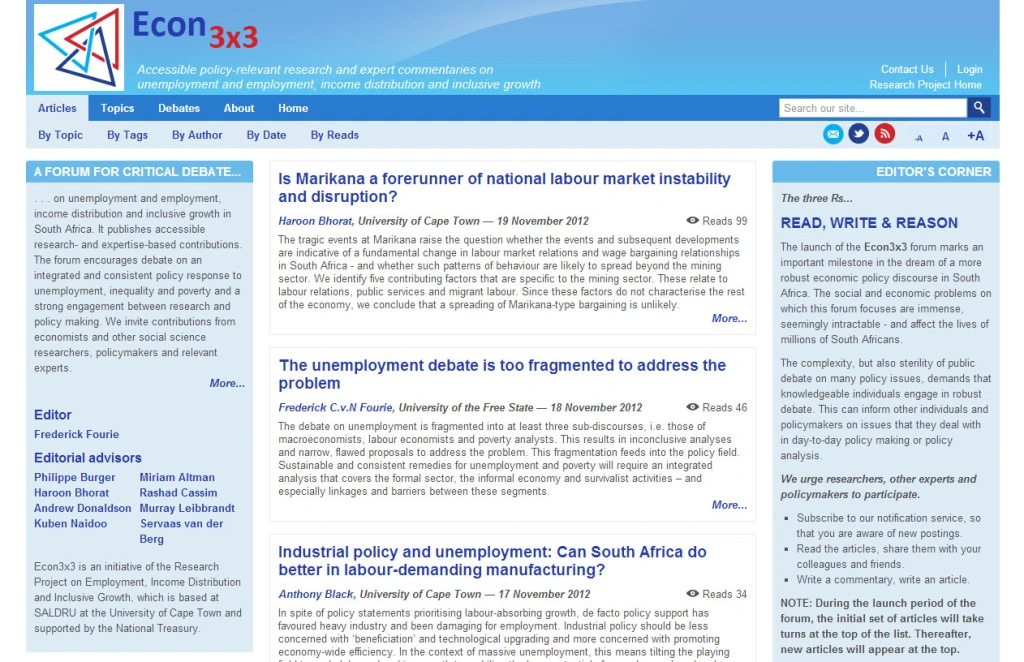The road from Mangaung
The ANC's Mangaung Conference won't be remembered for its policy debates. Indeed, the greatest triumph of Jacob Zuma, the re-elected leader, has been to steer away from policy debates and shift the focus to the personality traits of its leaders. Zuma's speeches have been filled with promises to satisfy all constituents. So, too, has the composition of the NEC.
This is, of course, not new. The left-wing win at Polokwane in 2007 resulted in large political shifts in the ANC culminating in the forced resignation of then-president Thabo Mbeki. But for all its political revolutions, very little changed in terms of economic policy. Yes, there was an (internal ANC) investigation about the nationalisation of the mines. Land redistribution remains on the agenda. But Mbeki, Manuel and Mboweni's policies persisted, even though all three were redeployed.
That these policies were maintained is not the issue; in fact, they are still considered to be the cause for the rapid poverty reduction of the late 2000s and a contributor to macroeconomic stability. What is problematic is that the demand for policy dialogue on microeconomic issues has diminished. New ideas such as a labour subsidy, export taxes, national health insurance, and measuring teacher competency have all been recently touted by various government officials as ways to speed South Africa's economic growth or improve the country's highly unequal income distribution. But a forum to discuss these ideas outside the corridors of Luthuli House have remained absent.
This is, of course, not only a demand-side problem, i.e. the fault of government or the electorate. Academic economists in South Africa have largely avoided engaging with policy debates on these national issues. Sure, there is some interaction with National Treasury and the South African Reserve Bank. But any attempt to find an informed discussion by leading South African economists about the causes of unemployment and the ways to solve it would be fruitless. Or an estimate of the economic impact of immigration into South Africa. Or the impact of child nutrition programmes at school. Or the role of Special Economic Development Zones. There are good reasons for this: the incentives for academic economists are highly skewed towards publishing, and publishing requires expanding the frontiers of science, not debating topics discussed in Econ 101 courses. As one example, Stan du Plessis delivered his 2011 Presidential Speech at the Economics Society of South Africa conference on the topic of nationalisation. It's an excellent read, but as far as I know, it has not been accepted for publication.
What is needed, then, is a forum where economists are encouraged to discuss economic policies, and where these ideas can feed into policy debates in government and the media. Frederick Fourie (no relation), former vice-chancellor of the University of the Free State (and with a PhD in Economics at Harvard), has taken up the challenge. He - and his excellent team - has created Econ3x3.org where they hope to offer regular contributions from South Africa's foremost economists on relevant economic issues. The screenshot above, with contributions by Haroon Bhorat on labour markets, Fourie on unemployment and Anthony Black on industrial policy, shows why this is long overdue: these contributions distil the essence of these important issues in non-technical language that should be accessible to a wide audience. At Mangaung, Trevor Manuel said that a lack of understanding of economic fundamentals by ANC members sidetracked important debates. Let's hope that Econ3x3 can begin the conversation.


